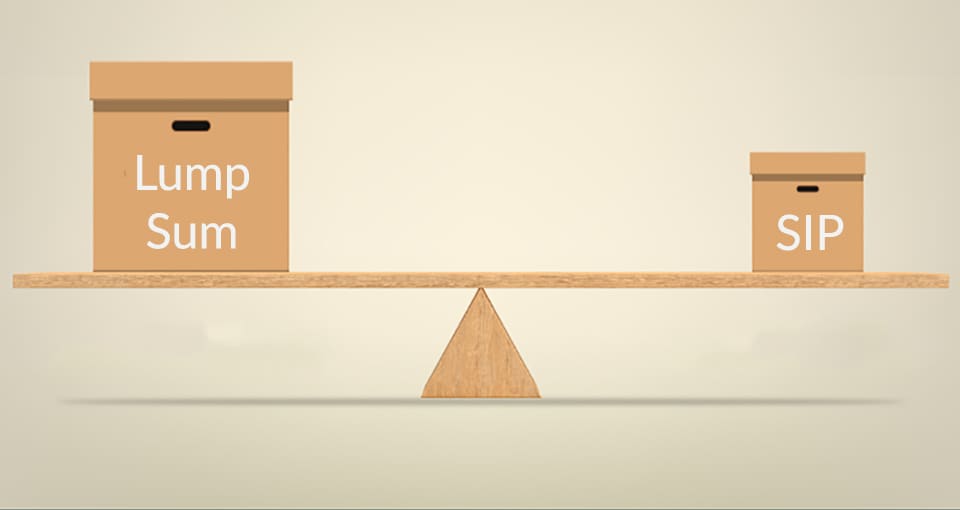SIP vs Lump-Sum: Which is A Better Way of Investing?

Investing is not everyone’s cup of tea. Many individuals who invest in stock markets have lost their hard-earned money due to bad investment decisions. It is nearly impossible for an individual to time the market correctly. Most of the individuals make investments based on mere speculations. To avoid making bad investments, one can enter the market through mutual funds investment.
What is Mutual Fund?
A mutual fund is a pool of money managed by a professional fund manager. A fund manager invests in companies after conducting a thorough financial analysis of the companies before making investment decisions through his equity/debt research teams. Investing through a mutual fund has its own benefits. Investors can diversify their portfolio by investing in multiple funds, reducing investment risk.
Every investor should make his investment decision based on his income, expenditures, risk appetite and financial goals. Depending on your financial situation and savings at hand, you can either invest through a regular SIP or lump sum in one go.
Let’s understand more about a SIP and a lump sum investment:
Lump-Sum
With a Lump Sum investment method, one can opt for a one-time investment in a particular fund. Suppose you get your annual bonus or have a huge disposable amount at hand, you can invest it this way, say Rs 50,000 at one time.
SIP
A Systematic Investment Plan (SIP) is an investment vehicle provided by mutual funds to investors, letting them invest a fixed amount periodically that can be calculated through a SIP return calculator on platforms like the Bajaj Markets. For e.g. the same Rs 50,000 can be invested periodically say on a per month basis, in this case as Rs 4167 per month.
Advantages of SIP over Lump Sum
Rupee-Cost Averaging
Enables you to invest your money during both the rising market as well as the falling market. Suppose you purchase mutual fund units through Lump Sum method in a rising market, your investments will fall when the markets start falling. Whereas, through SIP the risk is averaged out. This concept is known as Rupee-cost Averaging.
Ideal for beginners
If you are someone who has just started working, SIP is a perfect way to start investing. This way you not only start a journey towards achieving your financial goals but also learn more about the markets and make wiser decisions later.
No headache of timing or watching the market
As discussed above, individual often fail to time the market. With SIP investing, you don’t need to worry about timing the market or constantly keep a watch at the market as rupee-cost averaging kicks in here.
Power of Compounding
By regularly investing monthly through a SIP, you can enjoy the power of compounding as you earn a return on returns generated on your previous investment. This way your money keeps growing in the long-term.
No Stress
SIP investment is a less stressful option as compared to lump-sum investing. Markets tend to be highly volatile at times and can prevent you from being invested for the long-term. The effect of volatile markets is low on SIP because your money is spread over time.
Past Performance
As per the past performance in the last decade, SIP investing has performed better than lump-sum investing. Hence, SIP is more advantageous and provides stability to the investor.
However, if you have a lot of money at your disposal you can invest lump sum amounts by diversifying them into 4-5 best-rated funds at that point in time so that you don’t put all your eggs in one basket which would prove to be highly risky in the event of a falling market scenario.
You can choose Bajaj Markets to invest in top-rated mutual funds. Bajaj Markets offers you free & fast account opening, detailed portfolio insight, easy account setup, zero commissions and many other exclusive offers.
Blog Categories
Enter Your OTP



